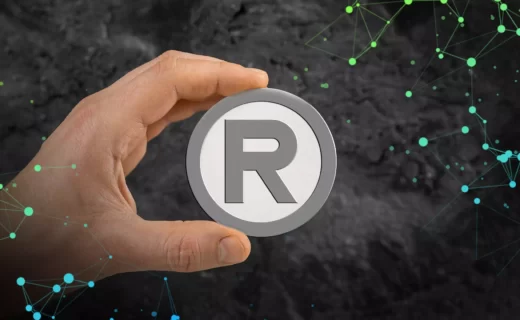Development of Non-Disclosure Agreement (NDA) for Confidentiality
The Non-Disclosure Agreement (NDA), also known as a confidentiality agreement, is a legal document that establishes the obligations of one or more parties not to disclose confidential information received from another party. The primary purpose of such an agreement is to protect confidential information and prevent its unlawful disclosure or use.
Development of a Non-Disclosure Agreement (NDA) is a service provided by qualified lawyers at Dextra Law. Our guarantees include an individual approach, in-depth knowledge, and reliable protection of businesses from unfair competition.
Where and Why Is an NDA Used?
The Non-Disclosure Agreement is used to safeguard confidential information exchanged between parties during cooperation or negotiations. This is particularly crucial in business, technology, and other sectors where the confidentiality of innovations, strategies, and technological details is critical. The agreement defines the scope of information, confidentiality periods, responsibility for breaches, and other conditions to provide legal assurance for the protection of confidential data.
This legal document enables parties to exchange essential information while ensuring that this data remains confidential and will not be used or disclosed without the consent of both parties.
Requirements for an Effective NDA
To be an effective and reliable legal instrument, an NDA must meet several key requirements:
- Clearly identify the parties obligated to adhere to the non-disclosure terms;
- Have a clear and broad definition of what constitutes confidential information;
- Establish time limitations during which information is considered confidential;
- Provide precise definitions of each party’s duties and responsibilities regarding confidentiality;
- Define information that is not considered confidential or situations where confidentiality can be waived;
- Specify terms for compensation in case of agreement breaches and the possibility of taking measures to protect rights.
What Should Not Be Included in an NDA? Is This Practice Effective? What Do Ukrainian Courts Say?
Entering into an NDA is subject to general principles of legal validity, but there are certain limitations and mandatory elements that can vary depending on the jurisdiction. Ukrainian courts recognize NDAs and consider them an effective instrument for protecting confidential information.
However, there are certain circumstances where an NDA may be limited or declared invalid:
- Non-compete clauses. The document should not include restrictions on competition that exceed reasonable timeframes, scope, and geographic boundaries. Non-compete clauses should be justified and limited.
- Prohibition of using publicly known information. NDAs cannot prohibit the use of information that is publicly known or becomes publicly accessible without violating the agreement.
- Unrealistic confidentiality obligations. Obligations to maintain confidentiality must be realistic and practical, rather than overly broad or unjustified.
- Violation of public policy. Some terms in this document may be deemed invalid if they contradict public policy or the law.
Is It Worth Using NDA Contract Templates?
While non-disclosure agreements (NDAs) are useful tools for protecting confidentiality in business, using standard NDA templates can have CRITICAL CONSEQUENCES. Here are a few reasons why you should avoid using them:
- Inapplicability to specific needs: Template NDAs can be too general and may not take into account the specific needs and characteristics of your business. Each situation requires an individual approach and thorough analysis. Template contracts generally do not cover all possible cases of confidential information disclosure.
- Incompleteness and ambiguity: NDA templates often contain general wording that can be subject to various interpretations. This can lead to misunderstandings and disputes in the future about what exactly is considered confidential information.
- Inability to account for specific legal requirements: Non-disclosure laws vary significantly in different countries and regions. It also depends on the industry and the legal status of the signatories. Template NDAs may not take these differences into account and therefore may not provide adequate protection for your business.
- Lack of flexibility: Your business may have unique processes and requirements that are not considered in standard templates. From our experience, many companies need to protect not only confidential information but also avoid competition. Using a ready-made template does not provide comprehensive flexibility in protecting your interests.
- Risk of invalidity: If an NDA does not meet legal requirements or contains incorrect, outdated legal standards, or its provisions violate the law, it can be declared invalid by a court. This can result in your confidential information remaining unprotected.
Instead of using template NDAs, it is recommended to consult our privacy lawyers. We provide a free initial consultation and help create an agreement that considers all the specifics of your business and meets the legal requirements of your country and industry.
NDA Contract SAMPLE
If you need to use template NDAs, it is better to use our own! Our templates are up-to-date in terms of the law and can be used in a number of standard cases.
- Sample NDA contract in .docx format
- NDA contract template (Diia.City) in .docx format
- Sample NDA contract in .pdf format
- NDA contract template (Diia.City) in .pdf format
Using these NDA templates will ensure you have the necessary level of protection for confidential information and save your time and resources.
What Documents Precede the NDA?
For the maximum effectiveness of the NDA agreement, an entrepreneur or individual should prepare additional documents, approvals, and procedures that enhance confidentiality protection. The basic necessary information is provided in the table below:
| What Documents Precede the NDA | What Must Be Defined in the NDA | What Follows the Signing of the NDA | |
|---|---|---|---|
| NDA for Counterparties and Third-Party Service Providers | Company internal policy on handling information: financial, commercial, legal, HR. With designated responsible persons. Continuous update of software licenses: accounting programs, anti-detection, access to SaaS, … Each party must have a copy of the signed agreement. | What information is being transferred? Who within the counterparty company can be given the information: by list with names. How is it transmitted and used? For what period? Who is the contact person (responsible for the transfer of confidential information) on both sides? How is a violation recorded? How do third parties access the information? Liability. | Work of the person responsible for the agreement on handling information. Legal monitoring of judicial practice and improvement of existing business processes. |
| NDA for Employees | Well (not formally) written job description. Provision on confidential information for the Company and employee’s acquaintance with it. Periodic assessment of employee knowledge on understanding what confidential information is and whether it can be in circulation. Training sessions. Control of the company’s internal resources for storing confidential information and access to it. | What information is being transferred? How and for what purpose is the information transmitted? How can a violation be identified and recorded? Responsibility for returning information after termination of employment and non-disclosure for some period after. | Work of the person responsible for the agreement on handling information. Legal monitoring of judicial practice and improvement of existing business processes. |
| NDA for IT Specialists | Contract with the specialist, clearly regulating the handling of intellectual property, know-how, which are also/can be part of confidential information. Provision on confidential information for the Company and employee’s acquaintance with it. Control of the company’s internal resources for storing confidential information and access to it. | What information is being transferred? How and for what purpose is the information transmitted? How can a violation be identified and recorded? Responsibility for returning information after termination of employment and non-disclosure for some period after. | Work of the person responsible for the agreement on handling information. Legal monitoring of judicial practice and improvement of existing business processes. |
Components of NDA Development Costs
The development of an NDA is a paid service, the cost of which depends on various factors:
- The complexity and volume of the document;
- The specificity of requirements;
- Development timelines: if an accelerated agreement is needed or additional requirements are necessary, this can also impact the cost;
- Client specifications and requirements, etc.
Our Advantages
One of the key advantages of the Dextra Law legal company is its specialization in information technology and other aspects of legal support in the IT sector. This allows us to effectively consider the unique requirements and challenges in this field when developing NDA agreements.
Other advantages of working with us include:
- Individual approach;
- Reliable protection of clients’ interests;
- Speed and efficiency;
- Continuous support and consultations;
- Competitive and affordable prices for professional legal services.
So, if you are looking for professional legal support in the development and execution of NDA agreements, don’t hesitate to contact the experts at Dextra Law today.
In Ukraine, non-disclosure of confidential information is regulated by the following laws and regulations:
– Law of Ukraine “On Protection of Information in Information and Telecommunication Systems” dated July 5, 1994, No. 80/94-VR. This law establishes the basic principles of protecting confidential information in information and telecommunication systems.
– Civil Code of Ukraine, specifically Article 505, which defines the concept and types of confidential information.
– Law of Ukraine “On Information” dated October 2, 1992, No. 2657-XII, Article 21, which regulates issues of protecting information with restricted access.
– Law of Ukraine “On Personal Data Protection” dated June 1, 2010, No. 2297-VI, which covers aspects of protecting personal data that may be part of confidential information.
– Law of Ukraine “On Stimulating the Development of the Digital Economy in Ukraine” (Diia City), which provides special regulatory regimes for residents of special legal regimes, including issues of confidentiality and information protection.
Examples of successful judicial practice on NDA in Ukraine can be found in the following sources:
1. Unified State Register of Court Decisions of Ukraine – this is an official portal where all court decisions made by Ukrainian courts are posted. You can search by keywords such as “non-disclosure of confidential information” or “NDA”.
Unified State Register of Court Decisions of Ukraine
https://reyestr.court.gov.ua/…
2. Professional legal platforms and databases – such as Liga, InstDoc,
https://verdictum.ligazakon.net/…
https://instaco.com.ua/…
that provide access to detailed reviews of judicial practice and other legal materials. These services may be paid, but they provide a wide range of information.
3. Scientific and practical journals – some journals, such as “Yuridicheskaya Gazeta” (Legal Newspaper), “Herald of the Supreme Court of Ukraine” and others, often publish articles and analyses of judicial practice.
These resources will help you find the necessary information and examples of successful judicial practice on NDA in Ukraine. Also, analyze negative practices to take into account the mistakes of others when preparing a confidentiality agreement and conducting employee training.
Yes, in Ukraine, an NDA can be concluded remotely. This is possible through the use of an electronic signature or other means of electronic identification, which have legal force in accordance with Ukrainian legislation.
Main ways to conclude an NDA remotely:
– Electronic signature: the use of a qualified electronic signature (QES) has the same legal force as a handwritten signature. QES can be obtained from accredited key certification centers.
– Electronic document management: the use of electronic document management systems (EDMS) that support the signing of documents with electronic signatures. These systems automate the process of signing and storing documents.
– Online platforms for signing contracts: there are specialized online services such as DocuSign or similar, which allow you to sign documents online.
– Email: in some cases, with the mutual consent of the parties and the absence of the need to use QES, the contract can be signed by exchanging scanned copies of signed documents via email.
Important: before concluding an NDA remotely, it is necessary to ensure that all parties agree to the use of electronic signatures and the method of document exchange. It is also worth considering the requirements of the specific contract and checking the current legislation to ensure that all legal aspects are observed.
In Ukraine, as well as abroad, an NDA can be concluded between individuals. A non-disclosure agreement (NDA) between individuals has the same legal force as between legal entities, provided it is properly drafted and signed by the parties.
Main aspects of concluding an NDA between individuals:
– Subject of the contract: The contract must clearly define what information is considered confidential and subject to protection.
– Obligations of the parties: Both parties must undertake obligations not to disclose confidential information, use it only for a specific purpose, and comply with other conditions of the contract.
– Term of validity: It is important to specify the period during which the non-disclosure obligations will apply.
– Liability for breach: The contract must specify the measures of liability for violating the confidentiality conditions.
– Signatures of the parties: The contract must be signed by both parties. For additional confirmation of legal force, you can use notarial certification of signatures, but this is not mandatory.
– Place and date of conclusion of the contract: The contract must indicate the place and date of its signing.
– Procedure for detecting and recording information leaks.
Concluding an NDA between individuals can be useful in various situations, such as business relationships, joint projects, or exchanging confidential information that requires protection.
Examples of situations for concluding an NDA between individuals:
– Joint work on a business project or startup.
– Transfer of business ideas or concepts for discussion and evaluation.
– Exchange of confidential information within the framework of consulting or cooperation.
Liability for violating an NDA (non-disclosure of confidential information) in Ukraine can include several types of liability: civil, administrative, and criminal. Here are the main aspects:
1. Civil liability
This type of liability is usually provided for in the NDA itself and may include:
– Compensation for damages: the party that violated the NDA conditions may be required to compensate for the damages caused to the other party as a result of the violation. This can include direct damages (e.g., lost profits) and indirect damages (e.g., reputational losses).
– Penalties: the contract may provide for the payment of a fine or penalty for each case of violation or for each day of violation of confidentiality conditions.
2. Administrative liability
Administrative liability may apply in cases where the violation is related to the disclosure of information that is protected under information or personal data protection legislation.
3. Criminal liability
Criminal liability may occur in cases where the NDA violation caused significant damage or was associated with the disclosure of state secrets or other legally protected information.
Article 232 of the Criminal Code of Ukraine
Disclosure of a commercial secret, if it caused significant damage to an enterprise or an individual entrepreneur, is punishable by a fine, correctional labor, or imprisonment for a certain period.
Important aspects:
– Evidence of violation: To apply liability, it is necessary to provide evidence confirming the fact of violation of the NDA conditions.
– Judicial review: Compensation for damages and the application of penalties may require a judicial review if the parties cannot reach an agreement voluntarily.
Recommendations:
– Clear wording of the contract: The NDA must clearly state all conditions, including the definition of confidential information, obligations of the parties, term of obligations, and liability for violation.
– Consultation with a lawyer: It is recommended to consult a lawyer when drafting the contract and in case of violation of its conditions to ensure the protection of your rights and interests.
Notarizing an NDA (non-disclosure agreement) is not mandatory in Ukraine. However, it may be advisable in some cases to increase the legal force of the document and confirm the authenticity of the signatures. Here are the main aspects to consider:
Notarizing an NDA
– Non-mandatory notarization:
According to Ukrainian law, an NDA is valid without notarization if it is signed by both parties. Notarization is not mandatory for this type of contract.
Recommendations:
– Consultation with a lawyer: Consult a lawyer to determine the best way to draft an NDA in your specific situation.
Overall, notarizing an NDA can provide an additional level of protection but is not a mandatory requirement for its legal force.




